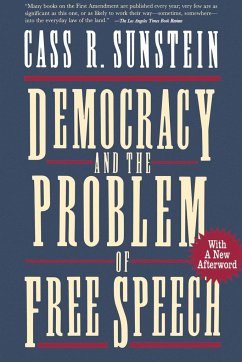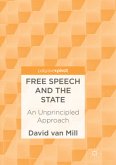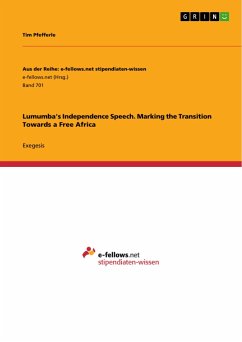The right to free speech is invoked to protect an astonishing range of activities, a range that seems to expand every day. Newspapers publish the names of rape victims, flags are burned, pornography flourishes, and all of these controversial actions are protected under the constitutional right of free speech. The Supreme Court increasingly decides disputes by invoking the First Amendment. Civil libertarians, former antiwar protesters, and tobacco advertisers join revisionist conservatives in attacking almost all forms of censorship, extending the search to the farthest reaches of commercial and symbolic speech. In short, we are in the midst of a revolution of absolutist interpretations of free expression. The absolutists are misguided, argues Cass Sunstein. Our government now protects speech that causes harm yet forbids speech that is essential, he says. Instead, we should conceive of free speech first and foremost as a means to achieve civic deliberation and true popular sovereignty. Building on James Madison, Sunstein proposes a "New Deal" for the first Amendment, a new interpretation that attacks undifferentiated absolutism and replaces it with a vision of responsible public life. Sunstein examines broadcasting, campaign finance, hate speech, pornography, government art funding, commercial speech, and the privacy of rape victims. He insists that political speech, essential for the functioning of any democracy, must not only be protected, but encouraged. If the government, say were to use broadcasting markets to encourage attention to public issues and diverse points of view, the First Amendment would not stand in the way. Nonpolitical speech, on the other hand, should be less fullyprotected when it conflicts with other interests and rights such as that of privacy. Democracy cannot achieve its full potential with a stunted public discourse. Instant polls and 900 numbers may seem to increase political participation, but they are no substitute for reasoned and careful public deliberation. In Democracy and the Problem of Free Speech, Cass Sunstein points the way toward a renewal of American democracy and a reaffirmation of political equality.
Hinweis: Dieser Artikel kann nur an eine deutsche Lieferadresse ausgeliefert werden.
Hinweis: Dieser Artikel kann nur an eine deutsche Lieferadresse ausgeliefert werden.








